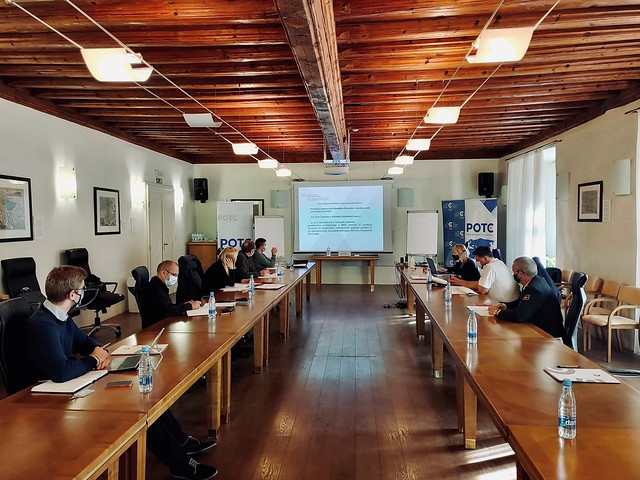The official kick-off meeting of the EU Civilian Training initiative (EUCTI) project virtually took place on 11 March 2021. The meeting welcomed eight project partners as well as representatives of EU structures, OSCE African Union, UN and EU CSDP missions. The meeting provided a platform for intense knowledge exchange through past and present experiences in the field of civilian crisis management and cooperation strategies that will provide guidance for the project.
The EUCTI project, co-funded by the European Commission through under Service for Foreign Policy Instruments (FPI.2), Instrument contributing to Stability and Peace, Conflict prevention, peacebuilding, and crisis preparedness component. The overall budget of the project is 2,5 million EUR. The EUCTI project consortium consists of eight partners: Austrian Study Centre for Peace and Conflict Resolution (ASPR), Clingendael – the Netherlands Institute of International Relations, Crisis Management Centre Finland (CMC), EGMONT – The Royal Institute for International Relations from Belgium, Sant’Anna School of Advanced Studies (SSSA) from Italy, Center for International Peace Operations (ZIF) from Germany, Folke Bernadotte Academy (FBA) from Sweden and CEP from Slovenia as its coordinator. All consortium partners participated previously in the Europe’s New Training Initiative for Civilians Crisis Management (ENTRi) activities and the EUCTI will draw on this experience.
The kick-off meeting was opened by the welcome speech of Markko Kallonen, Head of the EUCTI Secretariat, Katja Geršak, Executive Director of Centre for European Perspective, Matej Marn, Head of the Department for Security Policy at the Slovenian Ministry of Foreign Affairs, and Marc Fiedrich, Head of Unit, Service for Foreign Policy Instruments at European Commission. They emphasized the importance of training and capacity building for effective CSDP missions. The project can build on ENTRI legacy, harmonize the actions and ensure close collaboration among all stakeholders.
After presentations of project partners: Austrian Study Centre for Peace and Conflict Resolution (ASPR), Clingendael – the Netherlands Institute of International Relations, Crisis Management Centre Finland (CMC), EGMONT – The Royal Institute for International Relations from Belgium, Sant’Anna School of Advanced Studies (SSSA) from Italy, Center for International Peace Operations (ZIF) from Germany, Folke Bernadotte Academy (FBA) from Sweden and Centre for European Perspective (CEP), the meeting touched upon how the initiative fits into larger EU CCM (training) framework and on TRAs and their importance in training design and for EUCTI. EU CSDP Training Missions, OSCE, African Union, and UN representatives contributed to the meeting with their valuable insights about the current training needs, the impact of COVID-19, and the training delivery.
Over the next three years, 30 training activities, developed and designed specifically for the mission that will voice a training need, and implemented in the mission or in the region. Several other project activities, related to the development of new pedagogical approaches to the training, evaluation, and standardization, as well as support for 3rd country training institutions, will also be accomplished.





![[Webinar recording] Radicalization and Violent Extremism Across Borders: An Ongoing Threat](https://www.cep.si/wp-content/uploads/2021/02/Webinar-Radicalization-CEP-website-1080x608.png)


